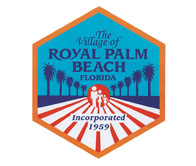The Royal Palm Beach Village Council last week presented mixed feelings about shaving its annual meeting schedule down from two meetings a month to one, with the option to add a second meeting when necessary. The change passed at the Thursday, Feb. 21 meeting on a split 3-2 vote, with councilmen Jeff Hmara and Richard Valuntas dissenting.
Mayor Fred Pinto introduced the concept at the Feb. 7 meeting and noted that the council’s workload has dropped significantly in recent years.
“From 1959 to 1993, the council only met once a month, and that was adequate,” Pinto said. “In 1993, the market was booming, and development was booming, which necessitated for the village to move to having a meeting two times a month. Now we find ourselves in 2019, maybe 97 to 98 percent built out, and the volume of activity and applications for developmental review is just not there anymore.”
Village Manager Ray Liggins proposed a schedule for council meetings throughout the remainder of 2019 and explained his reasoning behind it.
“The council is required to meet no less than once a month on the first or third Thursday of the month. What I propose for you here is basically that same program,” Liggins said. “We typically have the first meeting in July as a budget workshop, if there’s business that needs to be accomplished, we will combine that meeting as needed. I’m not showing a first meeting in March, but we do have things that would require a first meeting in March.”
Hmara was not satisfied and voiced concerns over the proposed changes both personally, and after speaking with residents.
“Each one of the meetings we currently have is an opportunity for the public to approach us. We just recently had an experience where an item was brought to us by a large number of residents. My concern is fewer meetings means fewer opportunities for that kind of engagement with the public,” Hmara said. “That’s not just my concern. If we were to use the first meeting for something like a workshop, and within that setting provide an opportunity for public engagement, it might be a reasonable way to address the concern about fewer opportunities to engage the council.”
After reviewing the proposed new schedule, Vice Mayor Selena Samios disagreed, feeling that it is better to have the schedule available in advance instead of canceling meetings as needed.
“I understand the different perspectives, but it’s adding two extra months that we only have one meeting. I’d prefer to have this set so the residents can see,” Smith said. “I’ve been contacted multiple times by residents. There is no way people don’t have the opportunity to reach us. Starting in July, we have two meetings every month. It’s not that much we are eliminating if we go off the [proposed] schedule.”
Pinto provided reassurance that the ability for the public to reach the council and express concerns or present items would not change.
“I think our policy has clearly been that whenever we meet, we give the public a chance to address us. A lot of cities don’t do this. We would certainly continue to do that,” he said.
In other business:
• Palm Beach County Fire-Rescue District Chief William Rowley presented his agency’s annual report to the Village of Royal Palm Beach. He summarized the number of calls, breaking them down into specific types, such as medical, fires, etc. Rowley also introduced the new Mobile Integrated Health (MIH) program, an initiative started in 2017.
“We identify an issue with a resident, and they’ll go out afterward and see what we can do to help solve the problem. It could be prescription issues, it could be for grab bars in a home — a lot of fall injuries can be addressed in the home to stop them from constantly having to go back to the hospital,” Rowley said. “If our crews identify any demographic having this issue, this group will make a referral to emergency services. It’s a new initiative around the country, and we are at the forefront of this.”
• Pinto provided updates on two transportation-related items: PalmTran’s plans to implement smart cards and the delay of the Palm Beach Transportation Planning Agency’s move into an independent facility.
“The smart card will give you the ability to move from service provider to service provider and not have to do any transactions with money,” Pinto said. “Think of the big picture. If they get this project done, it is a tremendous step forward because it makes it a lot easier to take advantage of connections of different transportation systems spanning as far as Indian River down to Miami.”
Regarding the TPA, last month Pinto shared that construction was expected to begin in March, but due to funding allocation issues, it is now delayed until August. This means the organization will not likely move into its new offices until November or later.
• The council also approved Liggins’ request to allow excess funds collected be used to rent the new Royal Palm Beach Cultural Center’s grand ballroom so that the village’s Pop Warner National Championship Team could hold a ring ceremony celebration in March at a date to be announced.








